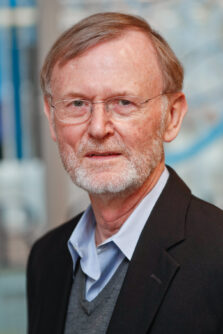The importance of institutions.
Many have long thought that “the key to success for conservative philanthropy is its willingness to give imaginatively and consistently, and according to a larger, coherent vision …. But what is the conservative vision for American today? And how can philanthropy best promote it?”
Those were the general questions posed by the Hudson Institute’s Bradley Center for Philanthropy & Civic Renewal at the first Bradley Symposium in Washington, D.C., 15 years ago last month, “Vision and Philanthropy.” They’re certainly still being asked today—maybe even more pointedly, given all of that which has occurred in the interim.
The Symposia used to be held on the mornings of the Bradley Prizes evening gala. That first one in 2005, moderated by Amy Kass, occurred amidst what might now be considered quite-heady times for conservatism. President George W. Bush had just been inaugurated to his second term, and reading the event’s edited transcript, one can certainly sense an overriding confidence—but, maybe in between the lines, a little bit of an underlying disquiet about the future, as well.
The Giving Review has gathered comments from some panelists who participated in the discussion, merely seeking any brief updates, reconsiderations, reiterations, and/or revisions they might be willing to share.
As conservatives, what did we get and do right since then? What did we miss and/or do wrong? How can we do better? Where could and should we be after the next 15 years, in 2035? How can philanthropy help get us there? How can it do better?
Juxtaposed with excerpts of his original comments in 2005, below are Stuart Butler’s comments. In ’05, Butler was a vice president of The Heritage Foundation. He is now a senior fellow in economic studies at the Brookings Institution.

Edited excerpts from Stuart Butler at “Vision and Philanthropy” symposium, February 2005:
I would say that [there] are two central things that we are seeking to preserve, [the] notion of mutual responsibility and obligation as individuals within our society—not saying the government should take care of this, but I have a responsibility to take care of certain things, and vice versa—and the notion of community as being an organic society that does gradually change over time.
Conservatism is that process of understanding how change takes place. It’s recognizing its superiority to radical ideas in the sense of those who say, let us jettison everything that we’ve learned before and our forefathers, because we figured it out from fundamental kind of logical principles and therefore we can impose it on everybody else.
***
I think the American people are nervous about when conservatives talk about culture. They wonder, are we going to have something imposed upon us? I think we can make and should make a least four specific points about how to think about this issue when we converse with the American people on how we think about its role.
Number one is the very point that people’s individual expression, whether it be in culture or expression in any way, affects other people. … I think secondly, that we recognize and I think ordinary Americans—all Americans generally recognize this—that freedom of expression, whether it be in the form of culture or just freedom of speech, does involve appropriate and proper self-restraint. …
I would say, thirdly, that it is very important that—one can talk about the freedom of people to express their view about what society should be like and what should be a cultural norm in society while denouncing what they actually say. … And I would say, finally, it’s very important to recognize that the culture and the common culture that we share is deeply embedded—as opposed to the occasional and the fashionable.
Stuart Butler today:
I’m quite gloomy about the state of conservatism today. That feeling is made worse by the widespread association of “conservativism” today with policies and attitudes that are often the antithesis of the vision I and others described back in 2005.
For instance, the idea of gradual change, with institutions constraining the energy of a free democracy, has taken many knocks. That’s partly our fault. We appropriately criticized the elites that created the culture of the major media, the judicial system, and even the military. But we failed to bolster a broad public understanding of why such institutions are critical to our democracy. That’s allowed politicians from the president down, and at the edges of both parties, to disparage these institutions and gain traction for radical ideas that would upend basic programs and cultural norms. In the case of the media, our failure helped make acceptable Goebbels-style manipulation of facts and public opinion.
Still, there has been some progress and cause for hope. We’ve been largely successful, for instance, in making the case that state-driven federalism, and local experimentation, is the best driver of reform in most policy areas, such as health care. On the other hand, we have yet to make a convincing case that our conservative vision of true freedom with proper self-restraint is central to our democracy and culture.
We do need help from philanthropy. But the need is not funding for new research and writing; what’s needed is help to build more platforms and organizations that raise the profile and stature of those making the true conservative case. Institutions matter.


